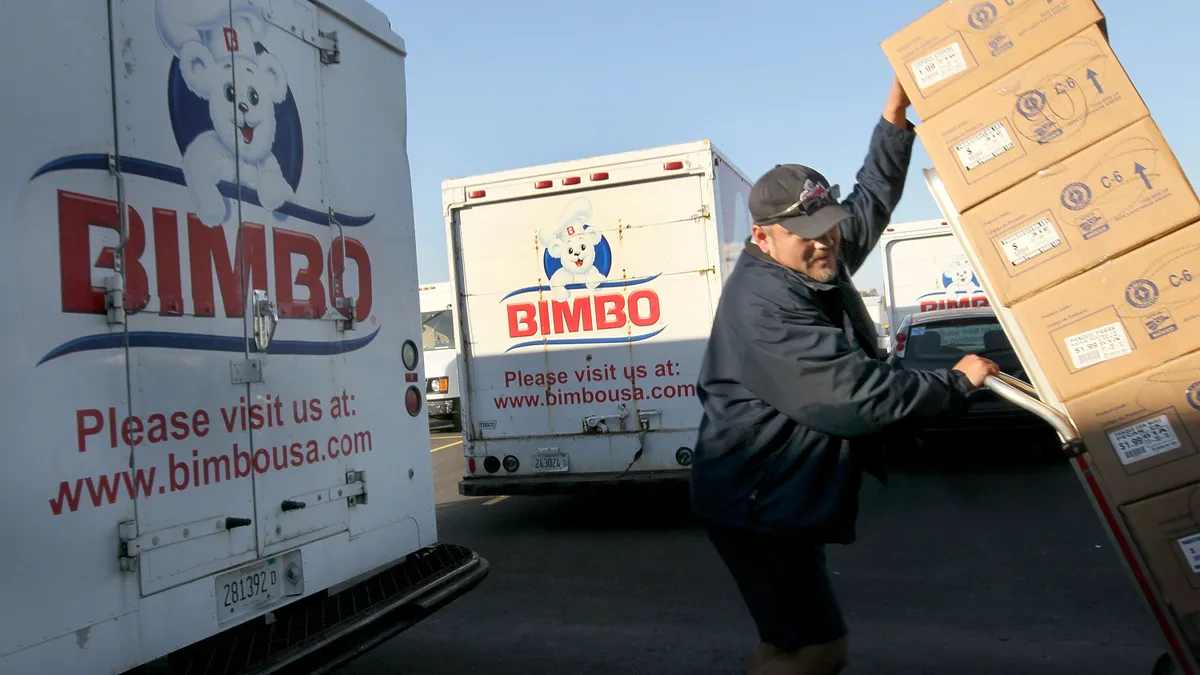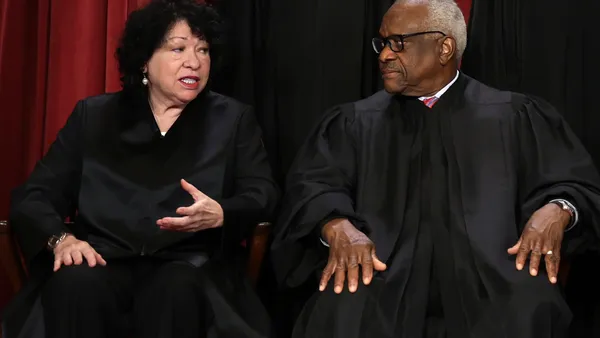Dive Brief:
- The U.S. Department of Labor has requested a Vermont federal court allow it to intervene and seek dismissal of a lawsuit Bimbo Bakeries USA Inc. — a major baking company that owns brands like Sara Lee, Entenmann’s and Brownberry — filed against its drivers, according to a March 21 agency press release.
- The drivers filed a lawsuit in October 2022, claiming the company misclassified them as independent contractors rather than employees in violation of the Fair Labor Standards Act and therefore owes them back overtime pay. Bimbo Bakeries countersued the drivers, seeking to recover sales revenue they collected as contractors if the court deems them employees.
- FLSA compliance and enforcement relies on workers feeling comfortable reporting potential violations to the department, DOL told the court. Should the company be allowed to follow through on its countersuit, “workers may well be chilled from asserting their workplace rights under the FLSA” and may be deterred from cooperating with the DOL on its investigations and litigation, the agency said. Bimbo Bakeries declined to comment.
Dive Insight:
DOL cited past legal precedents that found similar cause for intervention. The courts have held that the government’s interest in defending and upholding laws — and in the effective enforcement of federal statutes — have given it a “direct, substantial and legally protectable” interest in intervening, DOL argued.
And in its proposed motion to dismiss Bimbo Bakeries’ counterclaim, the agency pointed to previous judicial interpretations of the FLSA, which found that employers cannot sue workers to offset potential back wages, according to DOL.
Bimbo, in its counterclaim, said the drivers retained revenue from products sold; retained revenue from advertising agreements; and had the right to sell all or parts of their distribution rights. The workers would be “unjustly enriched by receiving wages available to employees while at the same time retaining the monies they received as a result of their status as independent contractors, which, if not for [their] independent contractor status, [Bimbo] and/or its predecessors could have reserved for themselves.”
DOL argued that position “is foreclosed by precedent from the United States Court of Appeals for the Second Circuit, which holds that claims for indemnification and contribution by employers are not cognizable in the context of the FLSA.” Moreover, it said, the “unjust enrichment counterclaim contravenes the text, worker protection purposes and remedial structure of the FLSA. Finally, the FLSA does not allow for the type of offsets against back wages owed that Defendants seek in their counterclaim.”
“Companies use counterclaims like this one to circumvent the requirements of the Fair Labor Standards Act,” Solicitor of Labor Seema Nanda said in an agency press release. “These companies want to have it both ways — they want the benefits of not paying overtime wages and, if a court says they must pay under the FLSA, they want their employees to reimburse them for their own violations of the law. That is simply not allowed.”
Beyond the DOL’s motion, employment law attorneys have generally urged caution with respect to countersuing employees. As Eric B. Meyer, partner at FisherBroyles, wrote for The Employer Handbook — citing a 2020 Michigan case also involving the FLSA and overtime — taking such action could also result in the employee tacking on a claim of retaliation.













